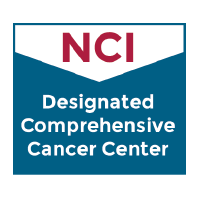
Thymoma
Thymoma is a rare cancer that affects the thymus gland, an organ located between the lungs. As part of the immune and lymphatic systems, the thymus supports the immune system's development during childhood and helps the body fight illness throughout life.
A thymoma originates in the epithelial cells lining the thymus. (Epithelial cells are tightly packed cells that cover surfaces of organs and other body parts.) This tumor typically grows slowly and is unlikely to spread. In some cases, however, cancer cells spread to the lining of the heart and lungs or to other tissues throughout the body. Another cancer of the thymus, thymic carcinoma, tends to grow faster than thymoma and is more likely to spread, or metastasize.
While the exact cause of thymoma is unknown, it is common in patients with myasthenia gravis, an autoimmune disorder that causes muscle weakness. Thymoma affects men and women equally and is typically diagnosed in patients over 70.
Our approach to thymoma
UCSF's highly skilled thoracic oncologists and thoracic surgeons deliver state-of-the-art care for patients with thymoma. Our team will provide a precise diagnosis and a tailored treatment plan, which may include surgery, radiation, chemotherapy, hormone therapy, targeted therapy, immunotherapy or other cutting-edge therapies. In the operating room, we use minimally invasive techniques, such as robot-assisted surgery, which can decrease complications and improve results. Our patients can also bolster their recovery and overall wellness by accessing continued care and support services, including support groups, nutrition education and mental health care.
Awards & recognition
-

Among the top hospitals in the nation
-

Best in Northern California for cancer care (tie)
-

Designated comprehensive cancer center
UCSF Health medical specialists have reviewed this information. It is for educational purposes only and is not intended to replace the advice of your doctor or other health care provider. We encourage you to discuss any questions or concerns you may have with your provider.





